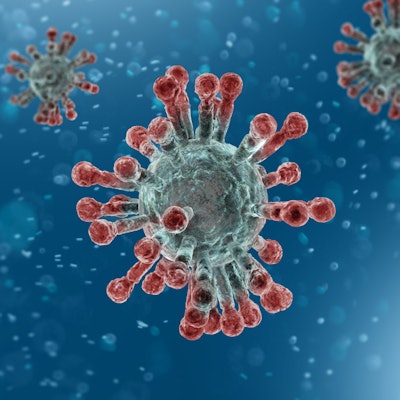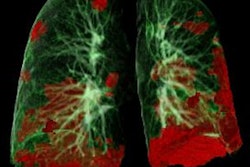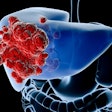
During the height of the COVID-19 pandemic, the volume of CT scans performed for cancer screening fell by 82%, while CT scans for other uses dropped as well, according to research to be presented at the upcoming RSNA 2021 meeting.
This dramatic drop is prompting concern among physicians that cancer patients will have poorer outcomes going forward, a team led by Ottavia Zattra of Massachusetts General Hospital in Boston wrote in the study abstract. Zattra is a fourth-year medical student at Harvard Medical School, also in Boston.
"COVID severely impacted cancer imaging care," the group noted. "CTs for cancer screening and initial workup did not recover to pre-COVID levels well into 2020, a finding that suggests higher numbers of patients with advanced cancers may present in the future."
Zattra and colleagues assessed the volume of CT exams and the reason for imaging during the following three periods in 2020:
- Pre-COVID: January to mid-March
- Peak COVID: Mid-March to May
- Post-COVID: May to mid-November
They found that CT for cancer screening fell by 82% during the COVID-19 peak time frame and that the volume of CT exams for initial workup, active cancer, and cancer surveillance also decreased.
| Volume declines in CT imaging during COVID-19 peak | |
| Reason for CT exam | Percent decrease |
| Cancer screening | 82% |
| Initial workup | 54.8% |
| Cancer surveillance | 44.7% |
| Tracking active cancer | 30.7% |
CT for cancer screening and initial workup did not bounce back to pre-COVID volumes after the peak, remaining down by 11.7% and 20%, the group noted.
The COVID-19 pandemic particularly affected the use of CT for cancer imaging in the outpatient setting, the researchers explained: Despite an overall decrease of CT imaging for cancer care, there was an increase in utilization in community hospitals and emergency departments.
This shift could have been due to patient anxiety about being exposed to the virus at large hospitals and primary care facilities, Zattra said in a statement released by the RSNA.
"When initial diagnostic imaging is done in the emergency room, that suggests that people were having symptoms due to cancer for months and months, and they weren't checking in with their primary care providers," she said.
The team plans to conduct a follow-up study that will assess CT imaging volume through 2021, considering the role factors such as race, language, and income may play in cancer care access during the pandemic.
"We need better awareness and outreach toward the oncologic patient population," study senior author Dr. Marc Succi said in the RSNA statement. "For example, if a patient is due for a yearly lung cancer screening with a CT scan, we need to make sure they're aware that they can and should get that screening regardless of COVID. Delays in screening are inevitably going to lead to delayed diagnoses and increased morbidity."



















